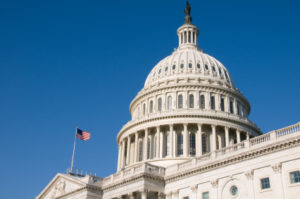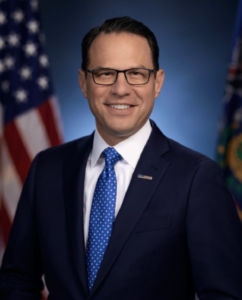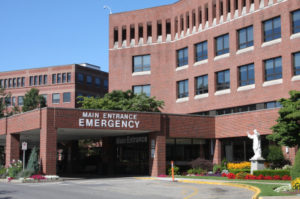PA Health Policy Update for June 23
The following is an update of selected state health policy developments in Pennsylvania from June 20 – 23. (Some of the language used below is taken directly from state documents.)
Medicaid Continuous Coverage Unwinding
The Department of Human Services (DHS) is maintaining an online dashboard with Medicaid continuous coverage unwinding data. The data on this dashboard tracks the renewal process by county and zip code. Additional updates and resources about the Medicaid eligibility renewal process may be found here.
General Assembly
The House and Senate returned to Harrisburg this week for voting session. The following are selected health-related proceedings.
- The Senate voted to confirm Governor Josh Shapiro’s nominees for the Department of Drug and Alcohol Programs, Dr. Latika Davis-Jones, and Pennsylvania Insurance Department, Michael Humphreys. A recording of the Senate Health and Human Services Committee confirmation hearing can be viewed here. A recording of the Senate Banking and Insurance Committee confirmation hearing can be viewed here.
- The General Assembly passed SB 262, which requires the Maternal Mortality Review Committee to publish severe maternal mortality data. The bill will now be sent to the governor.
- The House unanimously passed HB 1209 and HB 1407, which enable Pennsylvania to meet its obligations under the 1998 Master Settlement Agreement (MSA) with tobacco product manufacturers and ensure the state is able to continue receiving funds from the tobacco settlement for health-related programs.
- The Senate adopted SR 46 to establish the Task Force on Women Veterans’ Health Care to study the health care and access issues facing women veterans.
- The Senate Health & Human Services Committee held a voting meeting on Tuesday, June 20 at 10:30 a.m. to consider the following bills.
- SB 683, which requires an acute-care hospital to include testing for fentanyl if the hospital conducts a urine drug screening to assist in the diagnosis of a patient’s condition. The bill was reported as amended, to include xylazine.
- SB 768, which makes changes to the Pennsylvania Rural Health Redesign Center Authority (RHRCA) Act, including financing of the authority and board membership. The bill was reported as committed.
- SB 817, which creates a primary care workforce initiative for Federally Qualified Health Centers (FQHCs). The bill was reported as committed.
A recording of the meetings can be viewed here.
- The House Human Services Committee held a voting meeting Wednesday, June 22 at 11:30am to consider HB 850, which requires the Departments of Health and Human Services to apply for a waiver if the U.S. Department of Agriculture’s Food and Nutrition Service creates and makes a waiver available to the states that would allow those receiving SNAP and WIC to use those programs for menstrual hygiene products. The bill was reported as amended. A recording of the meeting can be viewed here.
The House and Senate will return to Harrisburg for voting session Monday, June 26.
Department of Human Services
- The Department of Human Services (DHS) issued a Medical Assistance Bulletin to inform Medical Assistance (MA) providers that DHS has added CPT code 0174A to the MA Program Fee Schedule for the administration of an additional bivalent dose of the COVID-19 vaccine manufactured by Pfizer, Inc.
- DHS has updated its calendar of mailing dates for Remittance Advices and corresponding electronic transfers and checks through July. Find the updated calendar here.
- DHS has announced the proposed Nursing Facility Assessment Program details for FY 2023-24, including the proposed assessment amount, the proposed assessment methodology, and the estimated aggregate impact on nursing facilities that will be subject to the assessment under the Nursing Facility Assessment Program. Find additional information in this Pennsylvania Bulletin notice.
Pennsylvania Health Care Cost Containment Council (PHC4)
PHC4 has published volume one of its annual analysis of the financial performance of Pennsylvania’s acute-care hospitals. The analysis found that hospital total margins across the state decreased 7.59 percentage points in FY 22. Go here to find a PHC4 news release describing the agency’s report, the report itself, and a link to downloadable data from the report.
Independent Regulatory Review Commission
The Independent Regulatory Review Commission (IRRC) submitted comments to the Department of Human Services on their regulation #14-543: Protective Services for Adults.
Stakeholder Events
DOH – Medical Marijuana Advisory Board – June 28
The Medical Marijuana Advisory Board will meet on June 28 from 10:30 a.m. to 12:30 p.m. to discuss Medical Marijuana Program updates. Find additional information and details on how to participate in this Pennsylvania Bulletin notice.
PID – 1332 Waiver Reinsurance Program Public Forum – June 28
The Pennsylvania Insurance Department (PID) has announced it is accepting public comment on its 1332 State Innovation Waiver Reinsurance Program beginning June 1 and ending June 30. PID will also hold an in-person forum for public comment on Thursday, June 28 from 1:00 p.m. to 2:00 p.m. Find additional information and details on how to participate in this Pennsylvania Bulletin notice.
DOH – Specialty Pharmaceutical Benefits Program – July 20
The next Specialty Pharmaceutical Benefits Program Advisory Council meeting will be held virtually on Thursday, July 20 from 10:00 a.m. to 12:00 p.m. Go here for details on how to participate.
DOH – Newborn Screening and Follow-Up Technical Advisory Board – July 27
The Newborn Screening and Follow-Up Technical Advisory Board will hold a public meeting on Thursday, July 27 from 10:00 a.m. until 1:00 p.m. The meeting will be conducted in person. The agenda will include discussions about Board member terms; updates from the Bureau of Family Health; and updates from the Lysosomal Storage Disorders/X-ALD, Cystic Fibrosis, Hemoglobinopathy and Critical Congenital Heart Defects subcommittees. Find additional information and details on how to participate in this Pennsylvania Bulletin notice.









